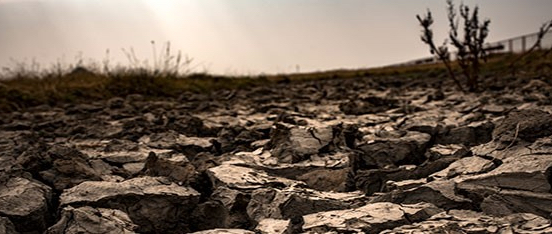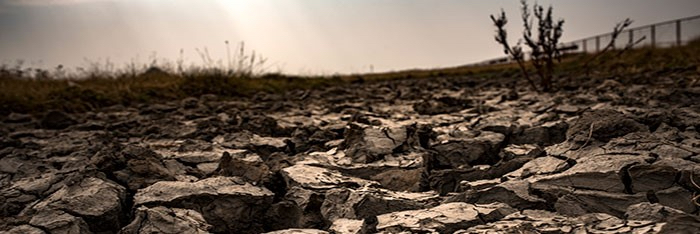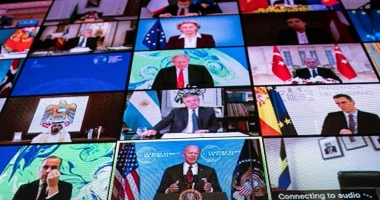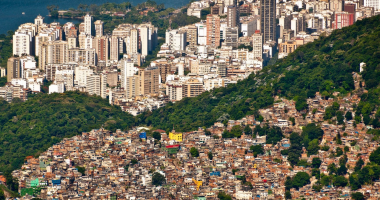Climate, Health and Equity Brief
Shifting values, extreme weather and a surge in activism
October 16, 2020

The Climate, Health & Equity Brief is GMMB’s take on the week’s news on the current impacts of climate change. If you haven’t subscribed yet, you can do so by clicking here.
Hot Topic: Waking up. New survey data out this week shows that Americans are nearly four times more likely to be alarmed by climate change than to deny it. With extreme weather events breaking records across the country, this shift in the country’s attitude should come as no surprise. Just this week, Phoenix, Arizona had its 144th day of temperatures at or above 100°F, breaking its own annual record. At 288 days into 2020, this means that Phoenix has faced blistering heat for half the year.
A new report from the UN further underscores the evidence of a changing climate, revealing that there were 7,348 extreme weather events in the decade from 2000 and 2019, nearly double the 4,212 that occurred in the two decades prior—a four-fold increase in deadly heatwaves, monster storms and wildfires in recent years. Yet another study this week found that climate-related disasters could cost the global economy $20 billion annually by 2030 unless substantial measures are taken now to reduce disaster risk and exposure.
Thankfully, activism across sectors continues to increase. As evidence continues to show the effects that a heating planet has on human health, the American Medical Association is pushing to ensure that climate curriculum is taught to medical students and included in hospital residency programs. Kaiser Permanente—the first health care consortium to achieve net-zero emissions—has developed a guide to help other hospitals and health systems do the same. And the Pope has taken to TED to deliver a visionary talk on the actions we must take to protect the planet we call home.
Even in the midst of a job market stunted by COVID-19, job seekers are choosing to stand up for the environment. More than 600 law students from 45 schools have pledged to boycott massive international law firm Paul, Weiss, Rifkind, Wharton & Garrison unless it removes ExxonMobil as a client. The decision signals a continued expansion of tactics among climate advocates to pressure companies abdicating responsibility for protecting our planet.
—Matt & Traci, GMMB
Health
A new UN report revealed that extreme weather events nearly doubled from 4,212 between 1980 and 1999 to 7,348 between just 2000 and 2019, claiming 1.2 million lives and affecting more than 4 billion people globally. (CNN)
Phoenix, Arizona beat its own record this week after the city faced its 144th day of temperatures at or above 100°F so far in 2020. (The Washington Post)
A growing number of medical professionals are pushing for climate curriculum to be included in hospital residency programs as climate change increasingly impacts public health in the U.S. (NPR)
Just six weeks since Hurricane Laura devastated coastal Louisiana, Hurricane Delta brought heavy winds and flooding to the beleaguered state last Friday, leaving three people dead and more than 110,000 without power. (NBC News, AccuWeather)
A recent report found that a global shift to plant-based diets would not only improve human health but also significantly contribute to the achievement of global climate, biodiversity and sustainable development goals. (Our Daily Planet)
Equity
Out-of-control wildfires have destroyed nearly half of all Indigenous lands within Brazil’s Pantanal—the world’s largest wetland—and exposed Indigenous groups to unprecedented levels of toxic smoke that threatens their health and food supply. (The New York Times)
Politics & Economy
A new survey shows that Americans are now nearly four times as likely to be alarmed by the climate crisis and its consequences than to deny it, indicating a significant shift in the country’s attitude toward climate change. (Grist)
A new study revealed that climate-related disasters could cost the global economy $20 billion annually by 2030 unless world leaders invest in effective disaster risk reduction and climate adaptation measures. (The Hill)
While a new report forecasts that renewables will be the primary means of global electricity production by 2025, a Trump administration plan to increase tariffs on imported solar panels may decrease solar demand in the U.S. (MarketWatch, GreenTech Media, Bloomberg)
A new report revealed that prosecutions for violations of the Clean Water Act and Clean Air Act plummeted by 70 and 50 percent respectively during the first two years of the Trump Administration. (The New York Times)
In a pointed TED talk, Pope Francis called on global leaders to transition to clean energy and sustainable agriculture systems to protect the planet and safeguard vulnerable populations. (AP News)
Action
Investment banking giant HSBC announced that it will provide up to $1 trillion in funding to help its clients align with Paris Climate Agreement goals and achieve net-zero emissions by 2050. (Reuters)
After becoming the first U.S. health system to achieve carbon neutrality, Kaiser Permanente has developed a guide to help hospitals and health systems achieve carbon neutrality and build a climate-smart health sector. (Healthcare Without Harm)
More than 600 law students across 45 schools have pledged to boycott U.S.-based law firm Paul, Weiss unless it removes fossil fuel giant ExxonMobil as a client, signaling a new tactical direction among climate advocates. (Axios)
Kicker
Need some heartwarming news? Take a look at these twin mountain lion cubs who have found refuge at the Oakland Zoo after being orphaned by California’s Zogg fire.






